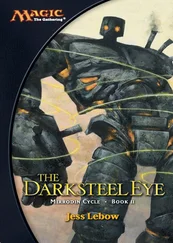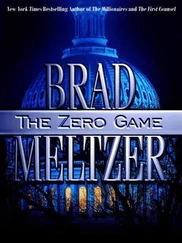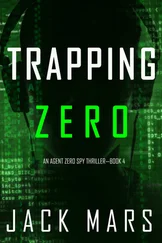“Hurts,” he rasped. He saw the usual streaks against the black, squirreling away when he tried to focus on them, but only half as many now, and only on the right side; the left was nothing but this sucking agony, a string of razor wire run through his left eye and into his brain, being tugged from the outside so that it strained everything on the way through. He tried to open his good eye but it was bandaged shut along with the bad one. He was grateful for the remaining flashers and floaters on the right side, so that there was at least something to see.
“I’ll get you something for the pain,” the voice whispered.
“Thank you,” Remy said. He reached up and touched the heavy bandages over his eyes. The tape covered most of his forehead and cheeks.
“And I’ll tell the surgeon you’re awake. He wants to talk to you.”
“What day is this?”
“It’s Wednesday.”
“Oh.” Then he heard her footsteps on the hard floor and Remy wished he’d asked a different question, a question about April. Wednesday meant nothing to him. For a few minutes there was only the pain and then more footsteps and the smell of briny cologne.
“How are you today, Mr. Remy?” The doctor mispronounced it, with a long E , but Remy didn’t correct him. “I’m Dr. Destouches. Orb cutter.” The cologne doctor’s voice was smooth and cool, like a disc jockey on a Sunday night jazz radio show.
“It really hurts,” Remy said.
“I should hope so. That’s the only way I know I’ve done my job.” The doctor adopted the voice of a lecturing professor. “Post-surgical eye trauma presents a truly unique sort of pain, Mr. Remy. It’s not localized, like a broken leg or a burn on your arm. You can’t touch it; it’s a generalized pain – but it’s not an ache. It is, at the same time, both sharp and diffuse.”
Remy just wished the man would stop talking about his pain.
“The body views eye surgery as such a severe violation,” Dr. Destouches continued, “a unique shock on every level. The eye is not designed to be cut into, like the skin; the central nervous system doesn’t know what to make of it when someone goes poking around on the top floors.”
“What was the surgery for?” Remy asked.
“You don’t remember?”
“No.”
The doctor laughed. “Well, since I see your signature right here on the release, I’m assuming that’s the anesthesia speaking and that we didn’t randomly crack open your head and try reattaching your retina without your permission.”
“No,” Remy said. “I’m having trouble keeping track of things. Everything skips.”
“That’s the anesthesia,” the doctor said. “You’ll start to get your bearings back in the next few hours.”
“No,” Remy said again. “It’s been that way for a long time. There are these gaps.”
“Yes, it can seem like that,” the doctor said, “but don’t worry. Once the anesthesia wears off, and the pain medication kicks in, you’ll be clear as a bell.” He shuffled pages again. “As for the surgery, I’m sorry to report that we were unable to reattach the retina. It was too far gone. So the vision in that eye… is severely compromised, Mr. Remy. After we take off the bandages you may still see some blurry images, especially on the edges, but in essence that eye is… gone. Black. Kaput.” He trailed off, but gave Remy little time before speaking again.
“I don’t know that I’ve ever seen eyes like yours. It’s like reading a textbook. The degeneration and detachment, the thinness of the retinas: remarkable. I’ve never seen such thin, tattered tissue on a human being that wasn’t a cadaver. It’s like mobile home curtains in there, Mr. Remy. It’s like the sheets in an old whorehouse. It’s like-”
“Okay,” Remy said.
“Is there a history of eye disease in your family?”
“I don’t think so,” Remy said.
“Because you have the eyes of a man in his nineties,” said Dr. Destouches. “And I have to ask – did you fly here?”
“Am I still in San Francisco?”
“Yes.”
“Then I flew here.”
“And did your ophthalmologist in New York approve that?”
“No. In fact, I think he told me not to fly.”
“Well, so much for your malpractice suit.” Remy could hear papers being shuffled again. “The good news, such as it is, is that you can still see out of your right eye – for the time being. You have a lot of debris in your field of vision… flashers, floaters, that kind of thing.”
“Yes.”
“Well, if you’re one of those people who looks for silver linings in mushroom clouds, we did manage to cut those in half.” The doctor laughed at his own joke and cleared his throat. “But please, do yourself a favor and take a train or a bus back to New York. Your eyes are as fragile as origami, Mr. Remy. As fragile as a fat girl’s confidence on prom night. As fragile as-”
“I got it,” Remy said. The word fragile made Remy think of April; he wondered if she was waiting to see him.
“The change in pressure from flying would be very bad for you,” Dr. Destouches continued. “Do you understand?”
“Yes,” Remy said, chasing the flecks around his good eye.
“I’m going to put that right here. No flying.” Remy could hear the doctor scratching on a pad. “And a word of advice: You might want to cut back on the liquor. At least while you’re on medication. You had a blood alcohol level of.039. That’s four times the legal limit, Mr. Remy. Do you understand what I’m saying?”
“No drinking and no flying-”
THE PLANE shuddered and jerked with the rattle of molded and fitted plastic and the grind of jet engines, strained against the ground’s pull, and when it felt as if it were on the verge of shaking loose its aluminum shell, finally broke with the ground and became still. They were in the air. Remy opened his eyes, but only the right one opened, the left still trapped beneath the gauze. He had a small airplane whiskey bottle in his hand. He looked over to the seat on his left, hoping to see April, but it was Markham, chewing a pencil, his face screwed up over a mostly open crossword puzzle. Markham leaned in. “Okay. Six letters. Rift . Last letter m. Third letter might be an h.”
Remy closed his eye and leaned back. He opened his mouth to say schism but what came out was-
“THE CELL,” the agent Dave said slowly, lingering on each word, “from what we have been able to gather over the last few months, is constructed thusly.”
Remy looked around the simple conference room. He and Markham sat behind an oval table in swivel chairs. Dave, the tall, thin agent with the braces, stood in the glow of a big computer screen mounted on the wall in front of them. On the screen were the words CELL 93 and a chart connecting six silhouetted heads in a small pyramid. Beneath each silhouette was a number: one, two, and three on the bottom row of the pyramid, four and five in the middle, and six at the top. One of the silhouettes, number five, had a red line through it; another, number two, had a question mark over it.
“Thusly?” Markham said to Remy, under his breath.
Dave spun to face them. “What’s wrong with thusly?”
“Nothing. It’s just… nothing.”
Dave faced the wall, and then turned back to Markham again. “Look. You are guests in this operation. The agency does not typically cooperate like this. I’m out on a limb here. So I would appreciate some support. And professionalism.”
“You’re right. I’m sorry,” Markham said. “My bad.”
“Ninety-three is a classic, small, leaderless cell, sui generis, ” Dave continued, shooting a quick, defensive glance at Markham before going on. “Each of its members is connected to one or two other members, but no one member is aware of more than two others, so that if one person goes down, two or three can escape and the cell can theoretically regrow – like a snake losing a tail. This is why it’s important for us to get to as many members as possible.”
Читать дальше












